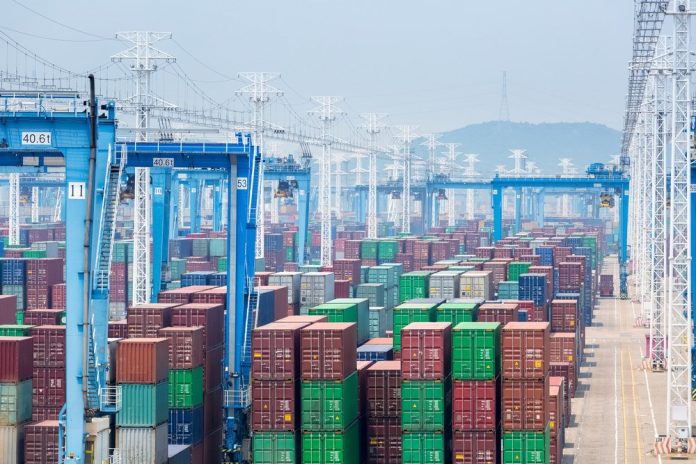The easing of Covid-19-related bottlenecks in China’s Yantian container port in June has been short-lived, as another outbreak has resulted in congestion again.
This morning (11 August), Ningbo port authorities suspended operations in Ningbo Meidong Container Terminal after a worker tested positive for Covid-19. The worker, who lived in a dormitory on the premises, initially tested negative on 8 August, but after re-testing two days later, returned a positive result this morning, prompting terminal operations to be halted.
Sea-Intelligence, citing HMM’s terminal congestion reports, said that there has been “a marked worsening of conditions” in the last two weeks, after a very short improvement in early July.
Sea-Intelligence CEO, Alan Murphy said, “This worsening is driven by problems in Vietnam, Ningbo, and Shanghai. Unfortunately, the Vietnam issues are driven by the Covid-19-related shutdown in the country. In terms of Ningbo and Shanghai, this might be an early warning of coming impact of more Covid-19 restrictions in China, as the Delta variant appears to continue to be present.
“The development is presently negative, leading towards worsening congestion issues, both related to terminals and intermodal.”
Shanghai is still handling a backlog after the world’s busiest container port closed for four days when Typhoon In-fa landed on 26 July.

On 10 August, China reported 143 new Covid-19 infections, a seven-month high. Additionally, since late July, Vietnam’s commercial capital, Ho Chi Minh City (Saigon), has been locked down due to an ongoing Covid-19 outbreak, slowing port and factory operations in the country’s south.
Therefore, liner operators have advised customers to expect longer-than-usual delays amid the current peak season.
Hamburg Süd’s Asia market update, dated 4 August, said that Covid-19 restrictions are extensively delaying Asia-North Europe shipments.
Ships are seven days behind schedules, compounded by slower corresponding truck and rail service connections.
The German carrier added, “The slower return of vessels to Asia delays imports, future schedule rotations and the supply of empty containers.”
Furthermore, in a Baltic Exchange commentary on 9 August, Vespucci Maritime CEO, Lars Jensen agreed that the current outbreak of the Covid-19 Delta variant in China could cause further movement restrictions and upward pressure on freight rates. He noted that the ripple effects of the Yantian lockdowns are still being felt.
“Any [Covid-19] impact on other major port cities would significantly impact the supply chains as well. The risk elements are leaning towards a higher likelihood for increases [in rates] than decreases,” pointed out Jensen.
 Hotline: 0944 284 082
Hotline: 0944 284 082
 Email:
Email: 


 VN
VN